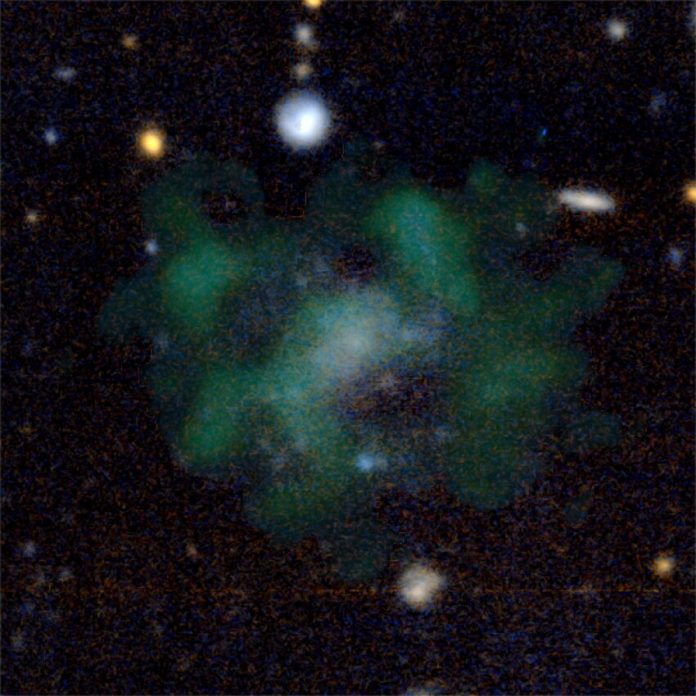An international team of astronomers found zero trace of dark matter in the AGC 114905 galaxy. They have taken detailed measurements of the galaxy with a state-of-the-art telescope. Their research paper has been published in Monthly Notices of the Royal Astronomical Society.
Scientists have discovered six galaxies with little to no dark matter. They have observed the galaxies for forty years with Very Large Array in New Mexico. The evidences they found there made their assumption even stronger for a dark matter-free galaxy.
The AGC 114905 is 250 million light-years away from Earth and it is an ultra-diffuse dwarf galaxy. Dwarf galaxy refers here its luminosity and not its size. The galaxy is similar to the size of our own Milky Way but have very few stars. Previously, researchers used to think that ultra-diffuse dwarf galaxies need to have dark matter to be held together.
The researchers collected data of AGC 114905’s gas rotation by VLA telescope. Scientists made a graph of the distance of the gas from the centre of the galaxy. To scientists this was a standard way to reveal the presence of dark matter in a galaxy. The graph revealed that the motions of the gas in AGC 114905 can be explained as a normal matter.
The researchers also said that the difference between their theory and observations are only getting bigger.
In their research paper, the scientists explained the reasons behind the lack of a dark matter in one galaxy.
The researchers also think that their theory can be changed if they observe the galaxy for a different angle.
The researchers are also examining another ultra-diffuse dwarf galaxy in detail. If the researchers found no trace of dark matter in that galaxy too then they will be sure of the fact about no dark matter galaxies even stronger.

